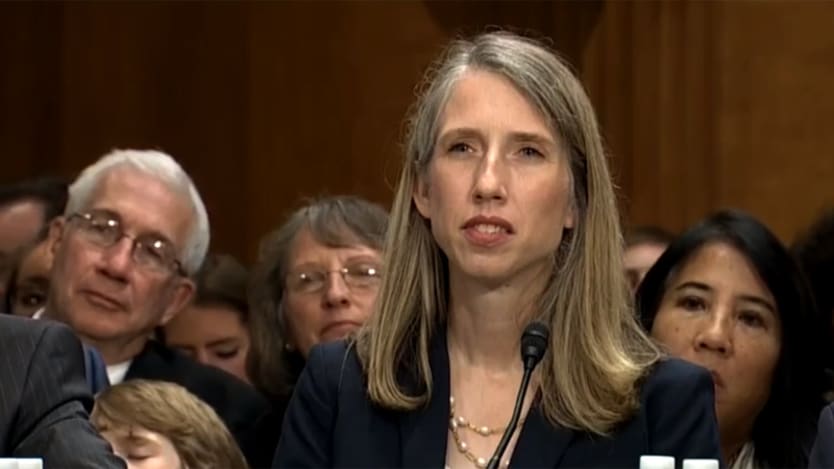
NEW YORK — The United Nations is expected to begin implementing its system-wide reform work in January, and the United States mission to the U.N. now has a new leader for its continued engagement in the process.
Last Wednesday, the U.S. Congress confirmed Cherith Norman Chalet, a reform and management expert at the mission for the past 10 years, as the new U.S. representative for U.N. management and reform.
The U.S. has been vocal in its desire to see reform at the U.N., and, apart from the secretary-general’s reforms, has been pursuing additional reforms about staff compensation, strengthening oversight, whistleblower protections, and ensuring procurement is done fairly and with open competition, she told Devex.
Devex caught up with Chalet on Thursday, on the sidelines of a humanitarian data visualization event co-hosted by the Tableau Foundation, to discuss how the planned U.N. reforms align with the U.S. vision, and where they differ. The conversation has been edited for length and clarity.
How much does the U.S. vision for U.N. reform differ from what actually is planned for U.N. reforms?
Overall, the goals dovetail with our overarching goals, which is to make the U.N. more effective and efficient. I would say, however, that the secretary-general is taking a look at how, on the management side, the organization is structured to best deliver with operations, salaries or supplies to troops in the field.
On peace and security, we definitely see value in what he is trying to do — basically to help there be more streamlined guidance to the field. And then on development reform, we definitely are supportive of him trying to enhance and bring coherence to the many actors that are on the ground. We had some issues with what was proposed, funding-wise, for the resident coordinator system, but we worked with member states and we came to an agreement that keeps it on the voluntary side.
The U.S. did not want a specific funding pool for those resident coordinators, is that correct?
The proposal was to bring it all under the assessed budget, and that's not how it was funded up until then. It was enticing to have a required pot of funding for people to pay into. We also felt that would cause the system itself to get a little stagnant, and to not be as dynamic as it needs to be. This is the thing that the U.S. continues to push, that even within the secretariat, where they get assessed funding, you can’t become complacent just because you know the money is coming.
The voluntary funded agencies know they have to prove their value for investment. I wouldn't say there is not a need or a reason to have a core budget for the U.N., but in this particular area, for the resident coordinator system, that is something that we did not want to see.
Will the U.S. be offering voluntary funding for this work in the next few months, in the lead up to January?
We're looking at that very closely. We are trying to identify funding — I can't say for sure that we will be able to, but it is definitely something that we want to do.
How do you think this voluntary funding strategy could make things different, potentially, in terms of the way resident coordinator work is done or the pressure to meet certain targets?
It makes sure the organization is showing the value of what the change is. I think there is a lot of support for this. And it is on the U.N. to show this is something that is of value that each country should contribute to.
Regarding resident coordinators in particular, how do you envision their work functioning, in practice?
The ideal — and I would say this is for all the reforms right now — would be that these proposals are given the political blessing by member states. And now this is where the rubber meets the road, now that the secretary-general and his managers and organization have to show that these changes are going to make things better.
Right now, all we have is paper, and we will need to see what this is going to change. The ideal of having someone in power to engage with the government, on behalf of all the agencies — we can see that value. Again, it's really going to depend on the person and the cooperation that he or she is going to be able to engender from the agencies. They are going to have to prove themselves.
It's a big shift for a lot of people.
It is, and even the model will take some getting used to. But I do think the overarching thing the secretary-general wanted to do was to bring more accountability because he is responsible for the U.N. system. He is trying to pull it up to bring better results, and he is making himself even more accountable for that.
NCDs. Climate change. Financing. Read more of Devex's coverage from the 73rd U.N. General Assembly here.








